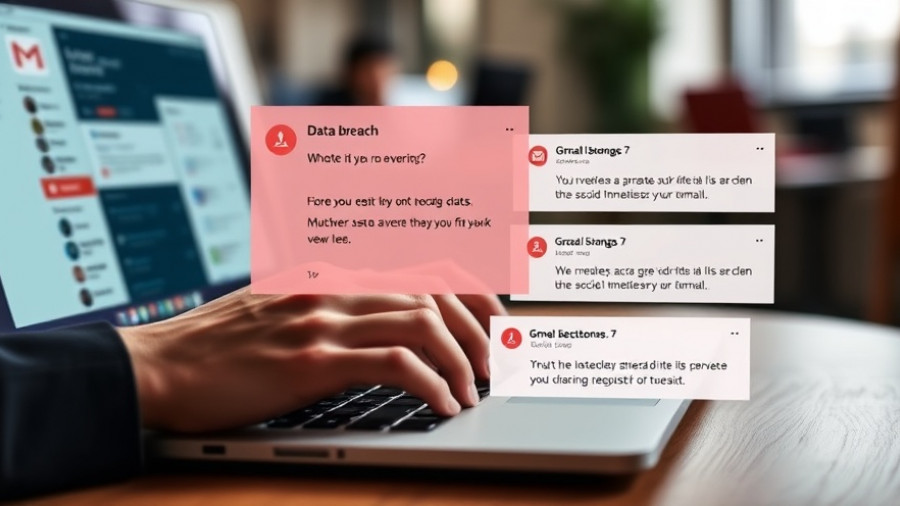
A Massive Leak: What It Means for Gmail Users in Kansas City
A recent cybersecurity revelation has sent shockwaves through the online community, particularly for Gmail users. A staggering leak has exposed over 183 million email passwords, including millions linked to Gmail accounts. This data breach, described as one of the largest credential dumps ever witnessed, has been attributed to malware that infiltrates users’ devices to capture login information. According to reports from renowned cybersecurity researcher Troy Hunt, this comprehensive trove contains 3.5 terabytes of data amassed from various infostealer platforms over the course of a year.
Understanding the Infostealer Impact
The incident underscores a significant and growing threat that extends beyond email security. The information was pulled from underground criminal marketplaces, indicating the extensive reach of malware. Analyst Benjamin Brundage stated that the findings illustrate how commonplace infostealer malware has become. Worryingly, 16.4 million of the exposed email addresses were confirmed to be new, implying a fresh wave of compromised accounts, raising concerns about the security landscape for all users.
Repercussions Beyond Email: The Risk of Credential Stuffing
The implications of this leak stretch far beyond mere email access. Cybersecurity experts are warning that many users reuse passwords across multiple platforms—from cloud storage to banking apps—making them exceptionally vulnerable. This practice opens the door to credential stuffing, a tactic where attackers deploy stolen username-password combinations across various services. The automated nature of this process significantly increases the likelihood of widespread account hacks.
Expert Advice: Protecting Your Digital Identity
In light of this breach, security professionals, including those from Google, emphasize the importance of adhering to best security practices. Users are strongly encouraged to enable two-factor authentication and adopt passkeys as more secure alternatives to traditional passwords. "Reports of a Gmail security breach impacting millions of users are entirely inaccurate," a Google spokesperson clarified, highlighting the ongoing updates to their credential theft databases.
Check Your Exposure Now: Tools to Secure Your Accounts
One of the best immediate steps affected users can take is to visit HaveIBeenPwned.com and enter their email addresses to check for exposure in this leak. This free resource allows users to see if their login credentials have been compromised, providing vital information about the nature of any breaches they might be involved in. Furthermore, Google has integrated a password manager checkup feature within Chrome that alerts users to potential risks associated with their stored passwords.
Moving Forward: Strategies to Enhance Cybersecurity
As we navigate this significant breach, it’s crucial for residents and businesses in Kansas City to prioritize cybersecurity. Reinforcing password strategies by avoiding shared passwords across platforms is critical. Utilizing strong, unique passwords for each account and employing encrypted password managers instead of browsers can minimize risks considerably. Additionally, keeping antivirus software updated and only downloading applications from reputable sources can prevent such malware impacts.
The current situation serves as a stark reminder of the importance of vigilant online behavior. As technology and cyber threats evolve, so too must our approaches to cybersecurity, ensuring we protect our digital identities in an increasingly interconnected world.
 Add Row
Add Row  Add
Add 




Write A Comment